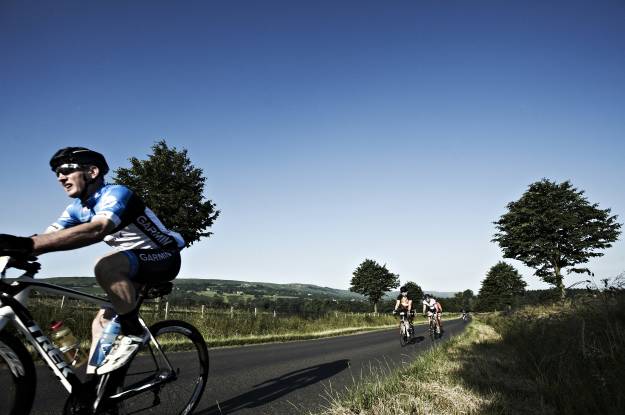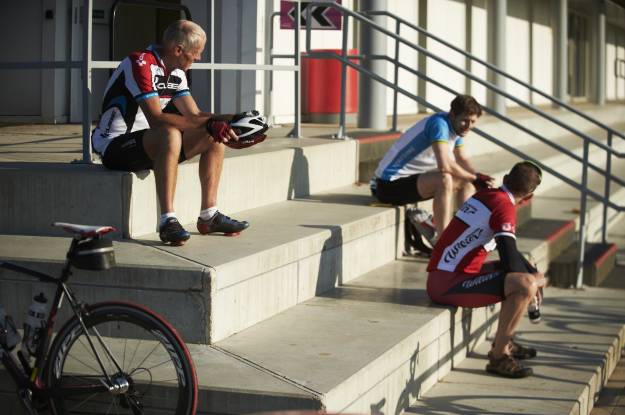 Despite the promises of fully signed routes, with on-site parking, a swift sign on and professional mechanics servicing any broken bikes, your sportive experience will be far more relaxed if you’re organised and self sufficient.
Despite the promises of fully signed routes, with on-site parking, a swift sign on and professional mechanics servicing any broken bikes, your sportive experience will be far more relaxed if you’re organised and self sufficient.
In reality this means being prepared enough to have everything ready the night before, including any bottles, food, directions to the sportive venue, directions to parking, any route maps and of course bike maintenance complete.
You should ideally be thinking about your day with at least a week to go.
Start with your bike - is it all working smoothly, or does it require attention? If it’s a basic clean and lube, or a simple adjustment then it should be a quick fix the day before. However if you need a mechanic, don’t expect a fix Saturday afternoon or just before the ride on event day. Cover the safety points first including brakes, tyres and quick releases. Then check the contact points and mechanical parts to ensure all are in safe working order. With these details covered in the days before the event you can rest assured knowing your trusty steed will be ready to roll.
As part of your preparation in the lead up to the event you should also try to eat a balanced diet. This can however be difficult at times and especially when you are travelling, or when you are staying away. It is of course important that you fuel your body with the right food and drink to make sure you will get round your event successfully. Read more on our nutrition tips below.
Despite the promises of fully signed routes, with on-site parking, a swift sign on and professional mechanics servicing any broken bikes, your sportive experience will be far more relaxed if you’re organised and self sufficient.
Having checked your bike and all being well, it is good sense to carry the few spares that you may need on the open road. You shouldn’t need to carry the kitchen sink, but a tube, pump and tyre lever should be the minimum you carry on any reasonable bike ride. Yes, there are often mechanics that can support you on the day, but don’t be reliant on these guys for the simple stuff. There are a multitude of extras that can often be useful, but consider what is reasonable and take what you think you may need. Multi-tools are a common extra along with tube patches and some small change. All this is typical back pocket or seat pack/ saddle bag fayre.
Think about the kit you may need on the day and ideally set it the night before. This allows you to find all the items, which are often strewn around your house, but importantly ensures you can dress appropriately for the weather and terrain that may come. Investment in a good pair of shorts is important, but make sure your helmet and shoes are good and packed and ready to go. A packable wind or waterproof may also be useful and should form part of your regular packing prep. It’s likely you will be out for a number of hours and as we all know our climate is typically changeable, so try to arrive prepared.
On the day be sure to arrive in good time for several reasons. These include parking being a distance from the start and sign on potentially having a queue. Also consider your arrival time as arriving at a peak to register and collect your number will may leave you short on time to do anything else. This includes eating before the event or sorting a last-minute issue should you have an emergency.
Think about the kit you may need on the day and ideally set it the night before. This allows you to find all the items, which are often strewn around your house, but importantly ensures you can dress appropriately for the weather and terrain that may come.
Finally don’t forget that before most events, that there may be a 30 minute wait. If you want to be near to the front of the pack, take enough clothing to stay warm on the line, while remembering to incorporate some kind of warm-up into the ride itself. Remember that even pro-stage races have a neutralised section at the start of every stage to allow everyone to warm up nicely. Savvy sportive course designers tend to keep the opening few miles of their rides relatively easy.
Read more about Pre Event Nutrition, Event Day Nutrition and Post Event Nutrition.
Want more information on event planning? Take a look at the British Cycling Insight Zone for advice from the same experts that work for the Great Britain Cycling Team.






